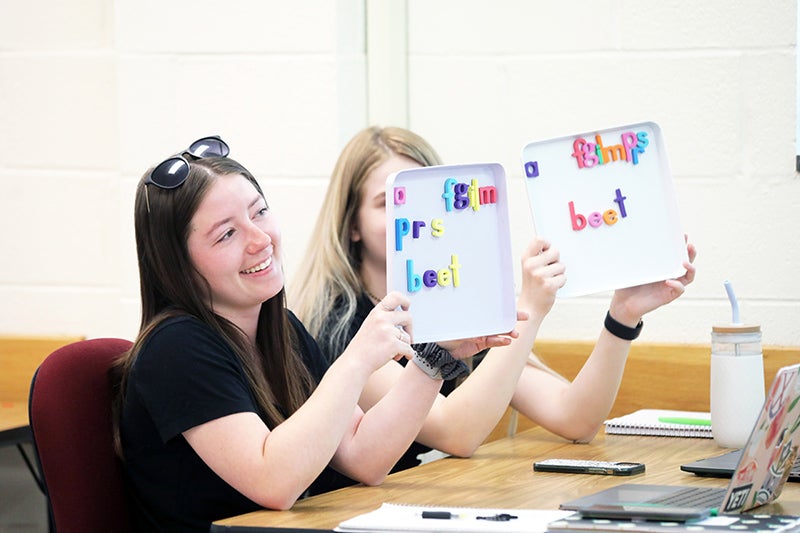ECU receives A+ for elementary education literacy programs
East Carolina University’s undergraduate educator preparation program has earned an A+ rating from the National Council on Teacher Quality (NCTQ), a recognition given to only 48 schools nationally for elementary education literacy programs.
NCTQ’s new report, “Teacher Prep Review: Strengthening Elementary Reading Instruction,” evaluated programs on the “science of reading” standards — research by literacy experts on how to teach reading most effectively.
“ECU’s elementary education program has long been recognized as a program that prepares top notch elementary educators, and this recognition from NCTQ supports and highlights the great work our elementary education and literacy education faculty do to prepare our teacher candidates for the classroom,” said Dr. Carol Greene, professor and chair of the Department of Elementary and Middle Grades Education. “Literacy instruction is a primary role of elementary educators. To that end, our future elementary educators at ECU take three courses, nine semester hours, in literacy instruction during their undergraduate preparation.”

Students in READ 3301 – Reading Instruction in the Primary Grades participated in hands-on activities to explore how elementary school students learning how to read may approach words and letters. (Photo by Kristen Martin)
The elementary education majors two courses in reading foundations and one on language arts methods. Within the courses, students read about the topic-specific theory and practical applications before discussing the readings and rehearsing specific activities. Then, they can apply what they have learned during their field experience and receive feedback to reflect on their teaching and their students’ learning.
Throughout their coursework, students continue to receive individual instructor feedback. The goal of the literacy courses is for students to actively and intentionally practice important teaching strategies focused on differentiated literacy instruction and assessment for elementary classrooms throughout the program.
“We are proud of the NCTQ recognition, which puts the spotlight on the high-quality nature of our program and on the importance of nurturing strong reading teachers who can meet the diverse needs of students,” said Dr. Elizabeth Swaggerty, professor and chair of the Department of Literacy Studies, English Education and History Education. “This recognition enhances our already strong reputation and tells our stakeholders that ECU’s teacher preparation candidates are prepared to teach reading and make a positive difference in our region’s classrooms.”
In addition to the three courses required for elementary education majors, ECU offers an add-on reading concentration, allowing students to learn more about K-12 literacy instruction, as well as two additional reading courses that will make students eligible for NC Reading K-12 licensure.
“We also offer eight continuing education (CEU) online modules on various literacy topics and a test prep course for the foundations of reading licensure exam,” Swaggerty said. “We are proud to have numerous literacy partnerships with local partners such as the ECU Community School and Read ENC.”
When evaluating the programs, NCTQ analyzed instructional hours, assigned readings, assignments, assessments and opportunities to practice reading instruction. The A+ rating was earned by exceeding the standards in the five core components of reading instruction — phonemic awareness, phonics, fluency, vocabulary and comprehension.
“It is imperative for educator preparation programs to continue preparing graduates with the skills and knowledge of the science of reading so they may provide excellent reading instruction to students that will ultimately improve their academic performance,” said Dr. Art Rouse, interim dean of the College of Education. “As we have worked on incorporating the science of reading in our programs, the support and feedback we have received from NCTQ has been incredibly instrumental in our curriculum alignment to the science of reading. NCTQ’s thoughtful feedback continues to be an influential component to our ongoing curriculum and program improvement processes.”